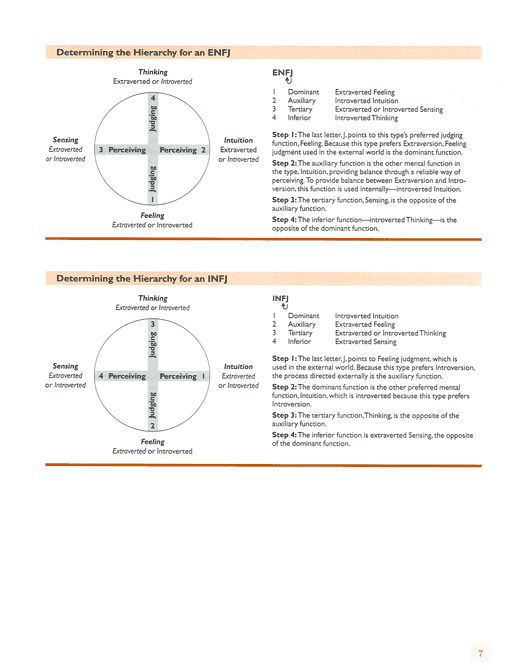CuriousFeeling
From the Undertow
- Joined
- Dec 18, 2009
- Messages
- 2,937
- MBTI Type
- INfJ
- Enneagram
- 4w5
- Instinctual Variant
- sp/sx
There's several things I can think of that could account for having higher levels of Te than Ti. Typically INFJ should have Ti as their tertiary function, but I find in my case I have a more developed Te than Ti. I'm wondering if this isn't due to being schooled in a science environment where following steps in a lab, searching for actual evidence to prove a hypothesis, looking for quantitative information that doesn't look at the subjective context to make an opinion, are crucial to science. I grew up in a household with ISTJ and iNTP parents. Now how I ended up with higher Fe in this environment is beyond me. I can understand how I would end up with higher Te having one parent with auxiliary Te.
I'm not complaining about having stronger Te, just I wonder how it got stronger than Ti. Usually INFJs under stress tend to create systems in their minds that might not necessarily have a practical application in life... kind of objectively analyze what is going on around them, become colder. I find under stress, I end up becoming much more irritable, bossy, fussy, and my patience levels go down. I end up disliking inefficiency even more... and want people to cut the b.s. Depending on the situation, I might end up becoming more or less emotional.
I still wonder if there might be other factors influencing higher levels of Te vs. Ti. I think I've already mentioned this before in another thread, but if anyone has information about this, I'm curious to see what you guys know.
Thanks!
-CF
I'm not complaining about having stronger Te, just I wonder how it got stronger than Ti. Usually INFJs under stress tend to create systems in their minds that might not necessarily have a practical application in life... kind of objectively analyze what is going on around them, become colder. I find under stress, I end up becoming much more irritable, bossy, fussy, and my patience levels go down. I end up disliking inefficiency even more... and want people to cut the b.s. Depending on the situation, I might end up becoming more or less emotional.
I still wonder if there might be other factors influencing higher levels of Te vs. Ti. I think I've already mentioned this before in another thread, but if anyone has information about this, I'm curious to see what you guys know.
Thanks!
-CF

 Plus function order is even less scientific than MBTI in general, which is saying something...
Plus function order is even less scientific than MBTI in general, which is saying something...
